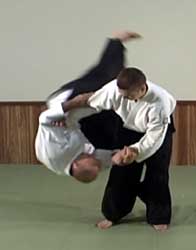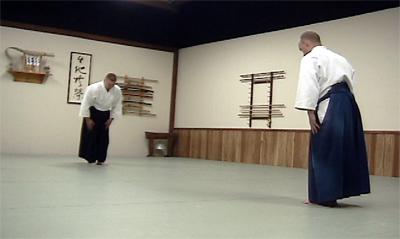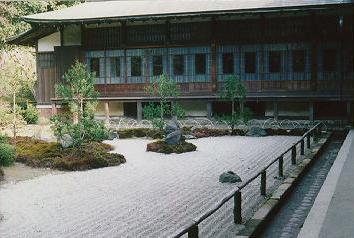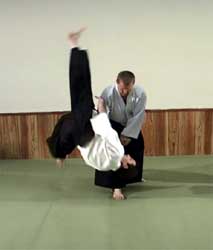 A remark one might hear in Japan to describe
someone who is not balanced or centered is, koshi ga takai mono
or “a person with high hips.” Another phrase from colloquial
Japanese is, koshi nukeru or “the hips are loose,”
which means someone who has lost their nerve. A coward is koshinuke
or “without hips.”
A remark one might hear in Japan to describe
someone who is not balanced or centered is, koshi ga takai mono
or “a person with high hips.” Another phrase from colloquial
Japanese is, koshi nukeru or “the hips are loose,”
which means someone who has lost their nerve. A coward is koshinuke
or “without hips.” |
|
The ability to demonstrate this centeredness
each instant, in all things, becomes ART. The real communication
of this appropriateness is our everyday energy, our posture,
our relations with all beings, and our realization of ourselves.
When we practice budo, our posture must be natural. Our centeredness
must come from the HARA, which takes it’s initial strength
from the alignment of the head, shoulders, hips, knees, and feet
at all times. We must be centered when still, and when we move
all of these physical entities must be relaxed and coordinate
efficiently with our intent and our breath so that the same centeredness
comes from movement. We are told, when we are centered, to flow
our ki. Simply put, our strongest KI flows when relaxed posture,
breathing, and intent are naturally balanced with our fearless
emotional, spiritual expression of LOVE.
 |



